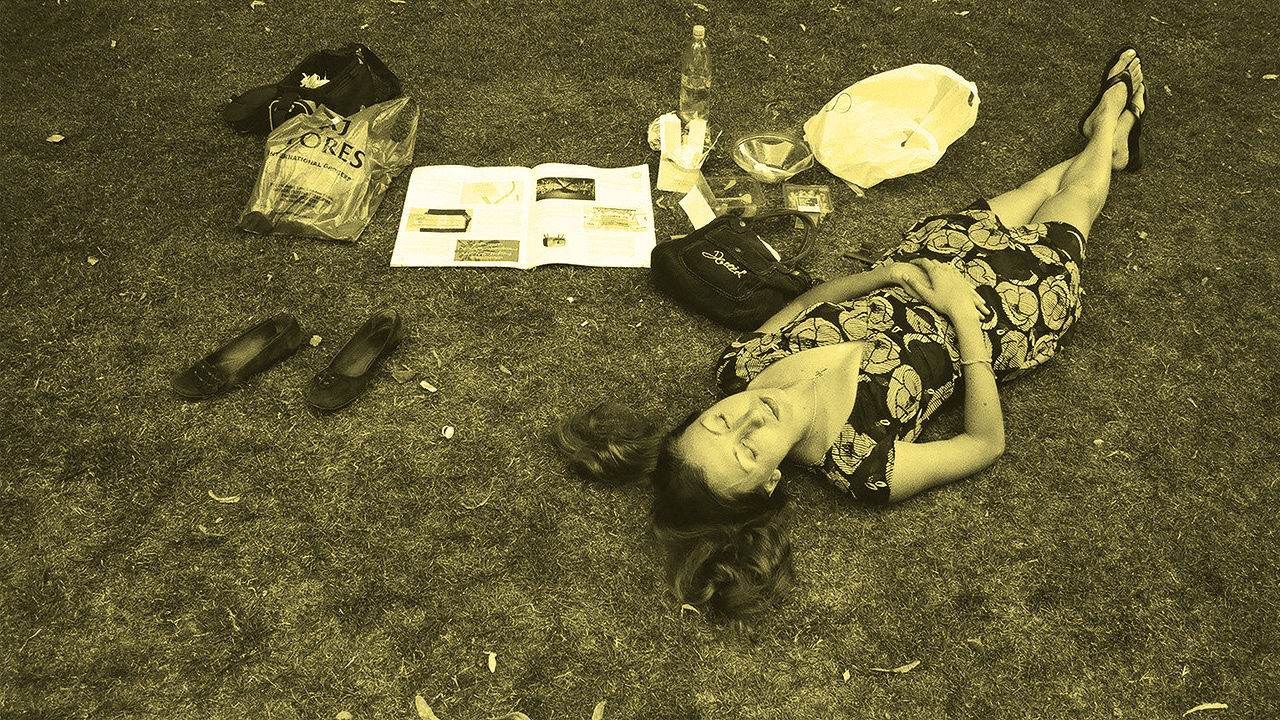FAST COMPANY: How The Most Successful People Conquer Burnout
Hearing stories of other people’s successful burnouts-turned-comebacks could inspire your own. Michelle Bernard, the president & CEO of the Bernard Center was featured with others in this article, which appeared in Fast Company on October 27, 2014.
By Vivian Giang
Here’s the scariest thing about burnout: It’s easy not to see it coming when you’re doing something you’re passionate about.
After several years of head-down-focused work, day in and day out, you’ll start to feel the rigorous training you’ve forced your body to adopt has taken a toll. You’ll either push through or hit the wall hard. The most successful people have all dealt with this life-work challenge at some point. Below, seven of them share what they did to reset and recover.
Focus On Your Purpose And Stay Centered
Angela Benton, cofounder of NewME
“Burnout is a big issue, particularly for entrepreneurs, mainly because the culture in being in a startup, especially tech startups, is ‘go go go,’” Benton tells Fast Company. “You have to be ‘on’ 100% of the time. When you’re running a startup, most people know you’re not going to have overnight success … you’re in the trenches for a long period of time.”
Before moving to San Francisco to head up NewME, Benton ran four miles every day, but startup life quickly got to her and she stopped running because she became “too busy.” She also kept forgetting to eat because she became “too busy.”
“At the time, people told me to make sure to take time for myself, but when you’re working on something you’re deeply passionate about, it’s fun,” she says, “It doesn’t feel like work … but you just cannot keep up that level of intensity.”
Feeling the time pressure and signs of burnout slowly creeping up on her, Benton decided to become more deliberate with her time last year. “I was exhausted,” says Benton. “I had gotten disconnected from the purpose of why I’m doing what I’m doing, who I’m doing it for.”
Today, the chief executive meditates around 20 minutes every morning to keep herself centered on the important things and makes sure she maintains a healthy lifestyle.
Learn How Other People Work Past Burnout
Benny Luo, founder of NextShark
Luo, a 26-year-old serial entrepreneur, has at least four startups under his belt. He doesn’t know how to completely separate himself from startup life and startup mentality.
“It definitely runs my life sometimes,” says Luo. “For me, every other week, I am on the brink of burning out. There’s so much uncertainty. Your thoughts are always wondering if this is going to work.”
To push past his point of exhaustion, Luo reads about other entrepreneurs or companies that have similar stories to him.
“I like those stories. They remind me that startups are very volatile that anything can happen,” he says. “They’re almost therapeutic for me.” Luo also learns how other people make it past their burnout zone when he interviews them, like this interview with Robert Greene where the famed author of The 48 Laws of Power addresses burnout:
Burnout is real and the problem that people have is that when they get frustrated or feel bored or they’re not quite challenged, they give up and they go on to to something else. There is a point here, a fine line between finding challenges for yourself, moving on when you need to move, and giving up because you are not able to push past that point of frustration. It’s a very slender line.
Know That Every Opportunity Has An Opportunity Cost
Tina Martini, partner at DLA Piper
“I think one of the things I wrestle with and the reason why the whole work-life balance conversation is being had, is that it’s hard to say ‘no,’” says Martini. “It’s hard to take a step back and say, ‘This is what I already have on my plate.’”
“I think having a conversation with yourself about what’s important, taking a step back to look at your life holistically … it becomes easier to channel those things that matter more and it’s easier to see when you’re about to be on the brink of burnout.”
Around five years ago, Martini felt herself cave in when she was wearing several hats and given additional responsibilities at her firm. To save herself, she tried to power down, not be on email and available all the time, and hired an executive coach.
“[The coach] really helped me take a step back and understand that with every opportunity, there’s an opportunity cost,” says Martini. “If you’re doing one thing, you’re foregoing something else.”
Reset, Recharge, And Rest
Jane Wurwand, founder of Dermalogica and FITE
To run her global company, Wurwand travels often and tells Fast Company that with the amount of traveling she does, a perfect balance is never really possible. However, she does keep a certain routine in order to remain fresh and focused.
I don’t believe ‘burnout’ is a function of the amount or intensity of work one takes on. Feeling burned out is a misalignment between the individual and their daily tasks.
“Traveling, especially overseas, means extremes and compromises, so it’s all about resiliency and bouncing back after lost sleep, crossed time-zones, and crazy schedules,” says Wurwand. “For me, it’s important to stay fit and work out, even when I travel for business, so that I have the stamina to meet the challenges that get thrown at us. Before I fly, I take loads of Vitamin C, oregano oil, and stay hydrated. Then, I try and follow my three R’s: Reset, Recharge, and Rest.”
To reset, Wurwand suggests taking walks or simply go outside; to recharge, she takes long baths with stress relief oils; to rest, she loads up on water and turns off all smart devices at night.
Take Some Time Off And Imagine Yourself Stepping Back Into It
Michelle Bernard, CEO of the Bernard Center for Women
“A few years ago, I worked on the first TV special I had ever done,” says Bernard. “It felt like I was working on adrenaline for months. I didn’t feel exhausted, but 24 hours after the show aired, I felt completely spent. I felt like I hadn’t slept in a year.”
“When you work on adrenaline for weeks or months at a time, eventually your body says, ‘I need a break,’” she continues.
Whenever she does have to work through these periods of exhaustion, Bernard says she now makes sure to take time out for herself to “retool.”
“You learn the routine, the ebbs and flow of how you’re feeling,” she says. “I know when I’m reaching my tipping point, I take some time off and reimagine myself stepping back into it.”
Mix Up Your Routine
Barbara Bates, CEO of Eastwick
Bates has been running her business for 24 years and has experienced burnout several times. “Everyone at one point in their life has been at their wit’s end but I found, for business and for your personal life, that pushing yourself to that brink isn’t healthy but also isn’t productive,” she says. “It doesn’t yield better results. It doesn’t help you think strategically or creatively.”
To stave off burnout, Bates practice flex-time at Eastwick. She also encourages her employees to do the same. She believes that in a business where most people have classic type-A personalities, the best way to prevent burnout is stopping it before it sets in. Bates also encourages her team to mix things up and try new routines to keep them from feeling worn out and spent.
Integrate Your Work And Life
Bismarck Lepe, CEO of Wizeline
“When I first started at Google, I and the rest of my colleagues worked 15 to 20 hour days and were always available on the weekends. We did this because we were all working toward the common goal of making Google successful. Stress or burnout was not a factor, I think, because we cared about Google’s success and we knew Google cared about us.”
“More generally, I don’t believe ‘burnout’ is a function of the amount or intensity of work one takes on. Rather, feeling burned out is usually caused by a misalignment between the individual and their daily tasks. If you’re plugged in–and are fully committed to, and believe, in the mission of your work–you’ll never truly experience burnout. It’s the difference between work-life balance and work-life integration.”

